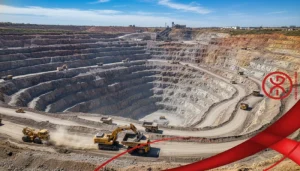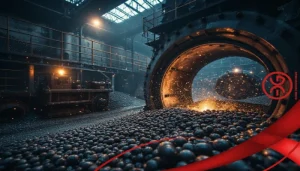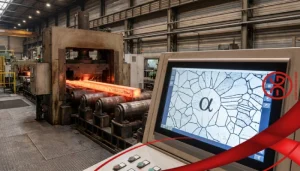Steel Grinding Balls: An Essential Component in Industrial Milling
Steel balls are fundamental to various industrial processes, serving as a critical media for size reduction and material processing in ball mills12. These specialized balls are engineered to effectively crush and grind materials into fine powders in dry environments or pulp in wet environments3. Their operation relies on the principle of impact and attrition, where the movement of the mill, along with the interaction, collisions, and attrition between the grinding balls and the material, reduces the material to the desired size13.
Steel balls are small, spherical elements made of steel, widely utilized across various industries due to their strength, durability, and versatility. These seemingly simple components serve essential roles in mechanical, industrial, and even recreational applications. Their characteristics and functionalities vary depending on their manufacturing process, material composition, and intended use.
alpha grinding media is the number one buying supplies for steel balls.
Applications of Steel Balls
Steel balls are employed in numerous domains, ranging from high-precision instruments to everyday objects. Below are the key areas where steel balls find their application:
- Bearings: Steel balls are critical in ball bearings, enabling smooth rotational movement by reducing friction between moving parts. This makes them essential for machinery, vehicles, and equipment in industries such as automotive, aerospace, and manufacturing.
- Grinding and Milling: Steel balls act as grinding media in ball mills used in mining, cement production, and chemical processing. They crush and grind materials into fine powders, aiding in material refinement and preparation.
- Valves and Seals: Steel balls are integral to the operation of ball valves and sealing mechanisms. Their precise shape and durability ensure tight seals, preventing leaks in plumbing, gas, and fluid systems.
- Abrasives: Steel balls are utilized as abrasive media in surface preparation, cleaning, and polishing. Steel shot and grit, derived from steel balls, help remove rust, paint, and scale from metal surfaces.
- Sports Equipment: Solid steel balls are used in sports such as bocce ball, petanque, and lawn bowling. Their weight, uniformity, and durability make them ideal for these activities.
- Precision Instruments: Steel balls serve as key components in precision instruments like gauge blocks and coordinate measuring machines. Their high dimensional accuracy ensures reliable and consistent measurements.
- Weights and Balancing: Steel balls are employed as weights or balancing elements in various systems, including automotive tires and industrial machinery. They provide stability and enhance performance.
- Novelty and Recreational Items: Steel balls are also used in decorative items, desk toys, and stress relievers. For example, Newton’s Cradle is a popular desk accessory featuring suspended steel balls that demonstrate conservation of momentum.
Manufacturing Process
The production of steel balls involves several stages to ensure their precision, durability, and high-quality finish. The key steps are as follows:
- Melting and Casting:
o Steel is melted in furnaces at temperatures around 1,500°C (2,700°F).
o The molten steel is poured into molds to create rough billets or bars. - Sphere Forming:
o Steel billets or bars are cut into smaller segments.
o These segments are shaped into spheres using ball mills or forging machines. Pressure, impact, and rolling actions form the steel into spherical shapes. - Heat Treatment:
o The spherical blanks undergo heat treatment processes such as annealing or quenching and tempering to enhance their hardness and toughness.
o Controlled heating and cooling cycles are employed to achieve the desired properties. - Grinding and Polishing:
o Abrasive materials and specialized machinery are used to grind and polish the steel balls, ensuring a smooth, uniform surface. - Inspection and Quality Control:
o Finished steel balls are inspected for dimensional accuracy, surface quality, and hardness.
o Defective balls are sorted out, while conforming products are packaged and prepared for distribution.
Types of Steel Balls
Steel balls come in different materials, each tailored to specific applications. Common types include:
1.Carbon Steel Balls:
Affordable and durable, these balls are used in general-purpose applications like machinery and industrial equipment.
2.Stainless Steel Balls:
Known for their corrosion resistance, stainless steel balls are used in environments exposed to moisture or chemicals, such as food processing and medical devices.
3.Chrome Steel Balls:
With high hardness and wear resistance, chrome steel balls are used in bearings, grinding, and heavy-duty applications.
4.Tool Steel Balls:
Designed for high-stress environments, these balls exhibit excellent strength and wear resistance, suitable for cutting tools and molds.
5.Nickel and Cobalt Alloy Balls:
These balls are used in applications requiring high-temperature resistance and magnetic properties.
6.Bearing Steel Balls:
Condar manufactures both Precision and Grinding Bearing Steel Balls5.
7.High Carbon and Forged Grinding Balls:
Molycop designs its grinding balls for maximum abrasion resistance by utilizing high carbon content and high hardness levels for outstanding performance8. They manufacture forged grinding balls in nominal sizes from 1.0” to 4.0” in diameter for ball milling and regrind applications8
High/Low Chromium Steel:
SMAT Mine manufactures grinding balls using premium-grade high/low chromium steel, in addition to forged steel and ceramic materials9.
Key Characteristics and Performance Attributes
The effectiveness of steel grinding balls is determined by several critical characteristics:
Hardness and Wear Resistance: Grinding balls are designed for high hardness and wear resistance89. Molycop controls surface and cross-sectional hardness through carefully selected heat treatment variables and specific alloy additions8. SMAT Mine emphasizes rigorous quality control to ensure consistent hardness, wear resistance, and impact toughness9. Fox Industries’ steel balls are engineered for superior durability and performance7.
Chemistry and Microstructure: The chemical profile of grinding balls is developed to correspond with heat treatment requirements, with specific alloy additions included to produce optimum physical properties8. Advanced heat treatment technology and precision alloy composition extend the service life of grinding balls, lowering the total cost per ton of ground material9.
Corrosion and Rust Resistance: Stainless steel balls, particularly 304 stainless steel, offer good rust resistance and certain corrosion resistance4. Fox Industries highlights the outstanding corrosion resistance of stainless steel balls for applications requiring purity and hygiene7.
Customization and Quality Control: Many manufacturers offer customization in size and material grade to meet specific needs610. Companies like SMAT Mine adhere to certifications such as ISO 9001, SGS, and ASTM/EN standards to ensure unmatched product quality9. Marteau Lemarie produces steel and stainless steel balls in grade 1000 with perfectly polished, smooth, and shining surfaces11.
Applications Across Various Industries
Steel grinding balls are indispensable in a wide range of industrial applications:
Mining, Cement, and Mineral Processing: SMAT Mine specializes in providing durable, cost-effective solutions for these sectors12. Molycop is a trusted supplier to mining operations globally, offering an extensive range of milling products13.
Parts and Industrial Production: 304 stainless steel balls are suitable for general parts or industrial production4.
Food and Medical Fields: Due to their safety and non-toxic properties, 304 stainless steel balls are also used in these sensitive areas4.
Pigments, Paints, Cosmetics, and Food: Magotteaux’s grinding balls can be used to grind materials for these industries3.
Leading Manufacturers and Suppliers
Several expert manufacturers contribute to the global supply of high-quality steel grinding balls:
Condar: A professional steel ball supplier based in China, known for producing stainless steel balls of various specifications and materials, including the widely used 304 Stainless Steel Ball610. They offer rich production experience and timely delivery614.
Molycop: This company specializes in grinding balls designed for maximum abrasion resistance, manufactured to exacting internal specifications at their global facilities. They supply forged, cast high-chrome, or ceramic grinding media815.
SMAT Mine: A leading global manufacturer with 20 years of expertise, specializing in high-performance grinding balls for ball mill applications, with a focus on durability and cost-effectiveness12. They provide comprehensive after-sales support16.
Magotteaux: Offers grinding balls made from a large range of alloys, specially adapted to the material to be ground, mill operating parameters, and wear mechanisms, aiming for the lowest wear and far greater efficiency3.
Fox Industries: Provides superior industrial milling and grinding media, including a wide range of steel balls, since 198927. Their focus on research and development aims to change the world through ultra-fine particle size reduction1718.
Marteau Lemarie: Offers steel and stainless steel balls for grinding and polishing, generally available from stock in standard diameters and tolerances1119.

Modern Innovations
Advancements in materials science and engineering have led to innovations in steel ball production. These include:
- Nanostructured Steel Balls:
o Enhanced durability and performance due to refined grain structures. - Coated Steel Balls:
o Surface coatings like titanium nitride or ceramic enhance resistance to wear and corrosion. - Customized Steel Balls:
o Tailored for specific applications, these balls can vary in size, material, and surface treatment.
Steel balls are indispensable in modern industries, serving as critical components in bearings, grinding media, precision instruments, and beyond. Their versatility, strength, and precision make them suitable for a wide range of applications, from automotive and aerospace to recreational and novelty uses. As technology advances, steel balls continue to evolve, meeting the demands of increasingly sophisticated applications. Whether in an industrial setting, a fictional universe, or a game of bocce, the utility and significance of steel balls remain unparalleled.
Steel balls play an essential role in our world, underscoring their importance in both practical and imaginative contexts.
Conclusion
In conclusion, steel balls are essential components in numerous industries and applications, thanks to their exceptional durability, precision, and versatility. From bearings and grinding operations to precision instruments and innovative uses in entertainment, steel balls play a critical role in ensuring smooth operations and optimized performance across various sectors. Their significance extends to advanced manufacturing processes, where precision and quality are non-negotiable.
For further details, technical assistance, or inquiries regarding steel balls, please feel free to contact Alpha Grinding Media’s support team. Our experts are ready to provide the information you need and assist you in choosing the right solutions for your specific requirements.
Frequently Asked Questions (FAQs)
What are steel balls made of?
Steel balls are typically made from high-grade steel alloys such as stainless steel, carbon steel, or chrome steel. These materials are chosen for their strength, resistance to wear, and ability to withstand heavy loads.
Where are steel balls most commonly used?
Steel balls are widely used in ball bearings, grinding mills, automotive components, valve systems, precision instruments, and industrial applications. They are also employed in sports equipment and as abrasives in surface preparation.
How are steel balls manufactured?
The manufacturing process includes melting and casting steel, forming spherical shapes through specialized machines, heat-treating for hardness, and polishing for a smooth finish. The balls are then inspected to ensure dimensional accuracy and quality.
How do I choose the right type of steel ball for my application?
Choosing the right steel ball depends on factors such as material composition, size, hardness, and intended use. For example, stainless steel balls are ideal for corrosion-resistant applications, while chrome steel balls are better suited for high-load scenarios. For expert guidance, you can contact Alpha Grinding Media’s support team.





